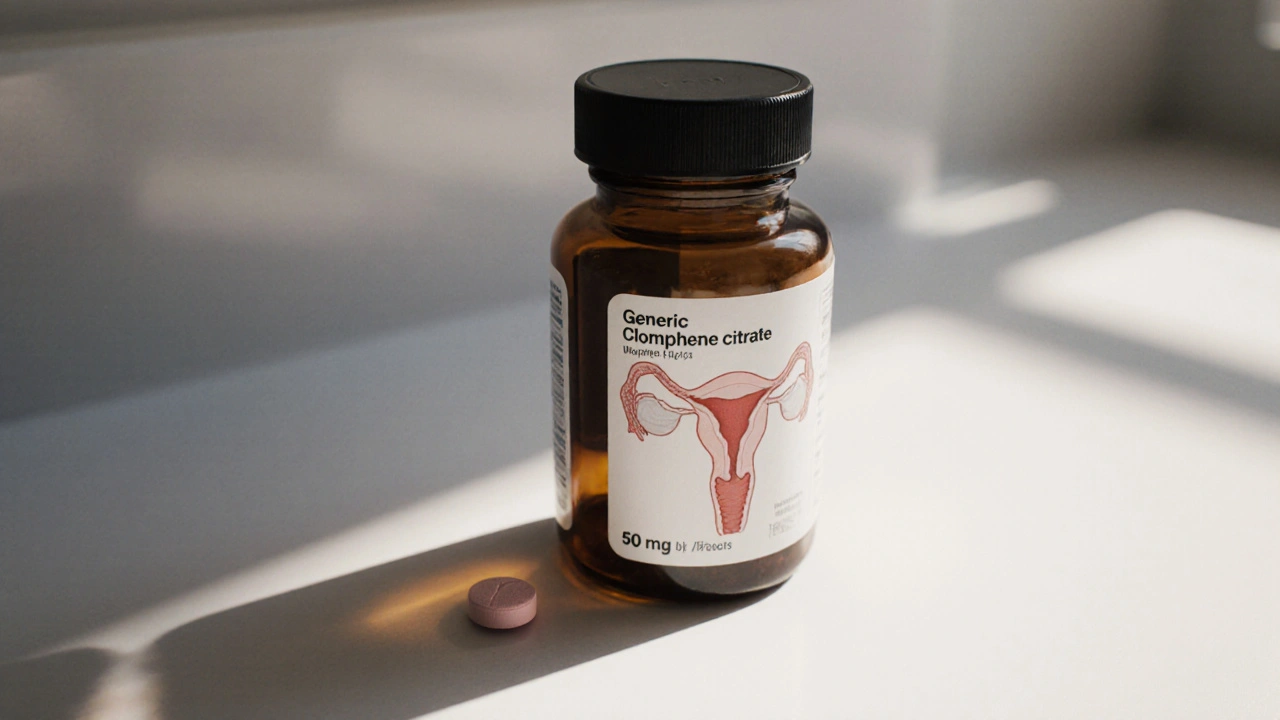
Buy Cheap Generic Clomid Online - Guide, Pricing, and Safe Sources
Learn how to safely purchase cheap generic Clomid online, understand pricing, avoid scams, and get tips on reputable pharmacies and side effects.
When you hear the name generic clomiphene, a widely prescribed oral fertility drug that encourages ovulation. Also known as Clomid, it belongs to the class of selective estrogen receptor modulators. Clomiphene citrate, the active ingredient, binds to estrogen receptors in the brain, tricking the body into thinking estrogen levels are low. This triggers a rise in follicle‑stimulating hormone (FSH) and luteinizing hormone (LH), which together kick‑start the ovulation process. In short, generic clomiphene enables ovulation induction, a core step for many women trying to conceive.
Anyone considering fertility medication, whether for polycystic ovary syndrome (PCOS) or unexplained infertility, should know that dosing is highly individual. A typical cycle starts on day 3‑5 of the menstrual period, with daily pills for five days; doctors adjust the dose based on how the ovaries respond. Monitoring through ultrasound and blood tests ensures the follicles develop correctly without overstimulation. The drug’s effectiveness hinges on timing: the induced ovulation usually occurs 5‑10 days after the last pill, so planning intercourse or intrauterine insemination (IUI) around that window is crucial.
Beyond the basic protocol, there are practical tips that can improve success rates. Taking the medication with food can reduce the occasional nausea, and staying hydrated helps the body process the hormone shifts. Some users report milder side effects when the dose is split into two smaller portions per day. It’s also wise to track basal body temperature and cervical mucus changes; these natural signs often align with the drug‑induced ovulation, giving a clearer picture for timing conception attempts.
While clomiphene citrate is effective for many, it isn’t a one‑size‑fits‑all solution. Women over 35, those with a history of ovarian cysts, or patients who don’t respond after three cycles may need alternative approaches. Options include letrozole, gonadotropin injections, or assisted reproductive techniques like IVF. Each alternative comes with its own set of considerations—cost, monitoring intensity, and potential side effects—so discussing goals with a reproductive endocrinologist is essential.
Bottom line: generic clomiphene offers an affordable, oral route to stimulate ovulation, but its success depends on proper dosing, vigilant monitoring, and alignment with a broader fertility strategy. Below you’ll find a curated set of articles that walk you through buying tips, safety checks, dosage guidance, and how the drug stacks up against other fertility treatments. Dive in to get the practical insights you need for making informed decisions on your path to parenthood.

Learn how to safely purchase cheap generic Clomid online, understand pricing, avoid scams, and get tips on reputable pharmacies and side effects.